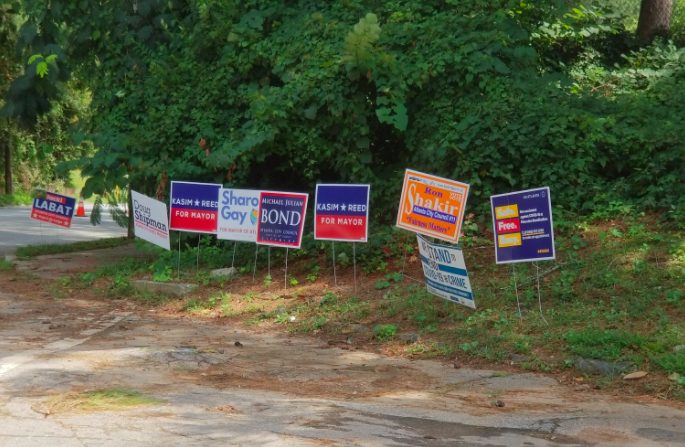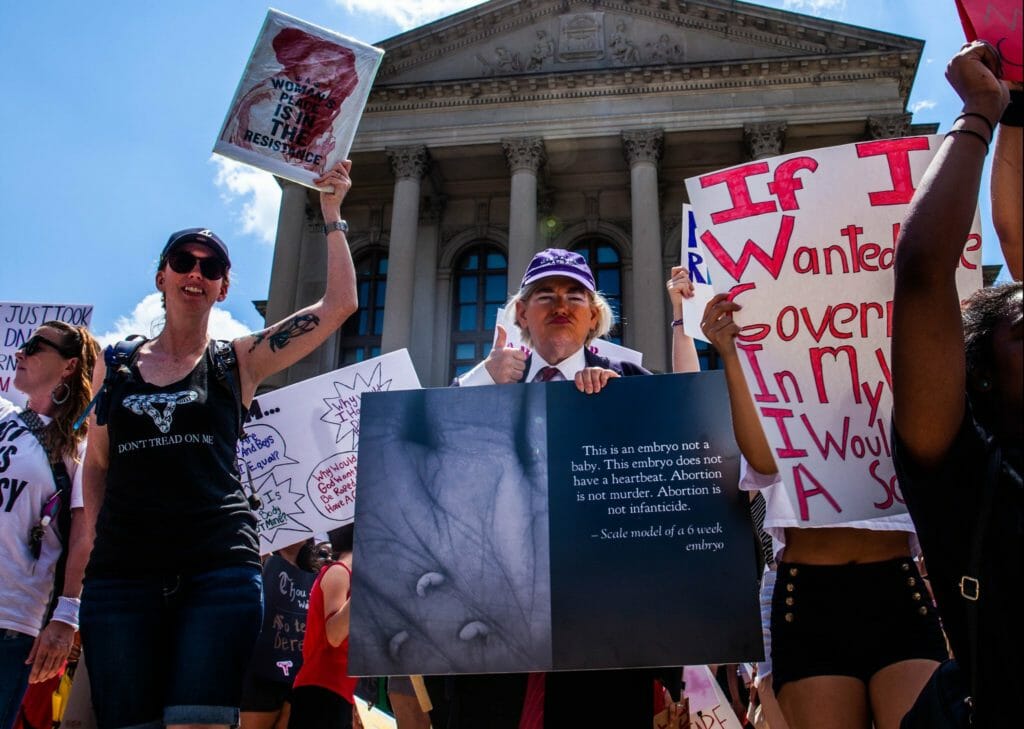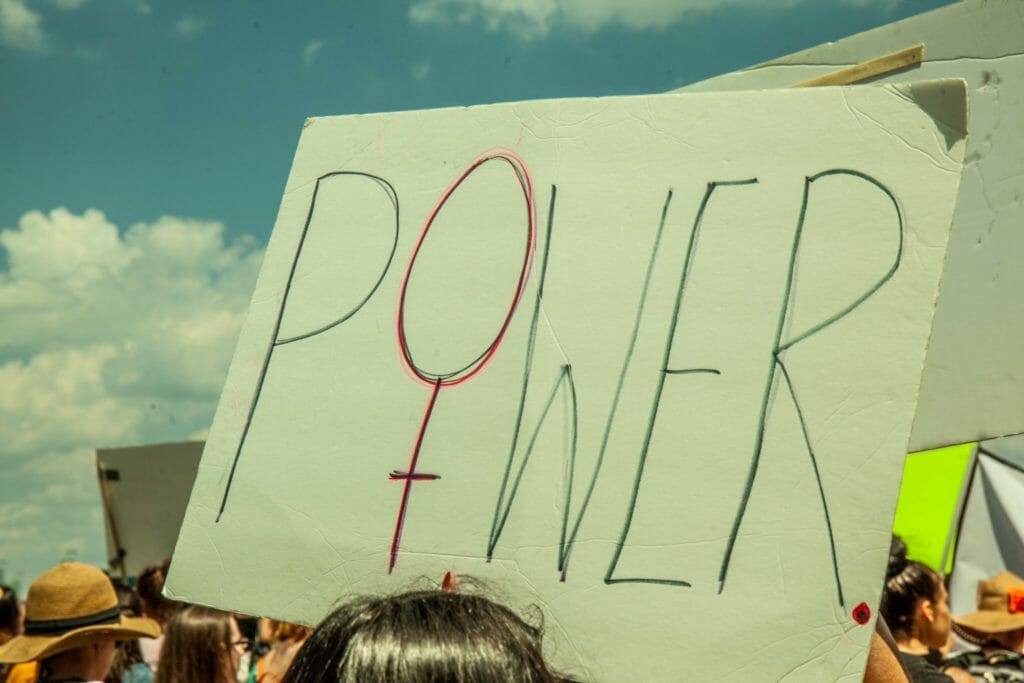Atlanta can’t afford to re-elect the status quo

Source: S.M. Johnson/The Mainline 2021
ATLANTA — Atlanta politics have been slowly and begrudgingly changing over the years. What has always remained in place is the regular cast of characters in City Hall. The charismatic mayor, the outspoken city councilperson, the Buckhead elite mouthpiece, and the frequently re-elected likable and trustworthy quiet section of the city council. Each election seems to be a paint-by-numbers exercise in identity politics.
At the beginning of this year’s election cycle, the candidacy announcements remained all too familiar. The same candidates using the same type of rhetoric about crime, housing, Buckhead secession, except now with a hint of COVID-19 policy protocol ideas. This year’s round of candidates even has similar donors as past candidates. I wouldn’t be surprised if some of the candidates used the same yard signs and paraphernalia from their previous campaigns, especially in the multi-million dollar mayoral race where we see contenders of earlier elections.
Campaign finances have become a source not only of corruption but also a slap in the face of communities and citizens who desperately need the money as the coronavirus pandemic and pre-existing crises continue. The Atlanta mayoral race has long been about who could raise the most money and use it to gain popularity. Reports show that donations to candidates eventually topped more than $10 million and that the 2017 mayoral candidates spent an average of $539,232 on their campaigns. For comparison, local nonprofit Star-C raised almost $10 million this summer to save 3,400 families from eviction. That amount of money is a drop in the bucket compared to the potential number of displacements that could occur, especially following the Supreme Court’s 6-3 decision to end the CDC eviction moratorium last Thursday.

Source: Ballotpedia/City of Atlanta
The expectation of bringing in the same amount of funds, if not more than the typical $500,000, poses a challenge to little-known or low-income candidates who want to break up the elite monopoly that has held elected office in Atlanta for too long. Currently, multiple candidates in the mayor’s race have each raised more than one million dollars. The money will not just go to ads, mailers, and campaign events. It could eventually be donated to charities and transferred to other candidates, PACs, political parties, or future campaigns, as those are the legal and ethical options laid out for candidates when they apply for office.
Sadly, those million-dollar candidates have already been declared as front runners though more than 10 are in the race. What about the rest of the candidates? We may never hear from candidates at the bottom of the fundraising meter because event coordinators, mainstream news sources, and pollsters will argue that those at the top are our best and only options. The current pay-for-play model does not make room for people who have experienced some of Atlanta’s worst challenges, such as wage inequality or affordable housing shortages.

Source: S.M. Johnson/The Mainline, 2021
Declaring your candidacy is not as simple as signing a few forms and passing out yard signs. Candidates seeking elected office in Atlanta must also pay a fee between $455 and $5,529 to qualify to be on the ballot. There are alternative paths to qualifying, but most candidates pay the required payments when possible. Those who have run multiple campaigns easily pay the fees and typically have name recognition, backing from large organizations, corporate interests, teams of volunteers, and leftover cash from previous election cycles. That head start and stability make it much easier to jump to the top of the pack with little to no mention of solutions to the issues plaguing our city.
However, endless amounts of money and the status quo mentality don’t accurately represent all Atlantans anymore. Atlanta’s population continues to increase with more transplants moving to the city than ever before. That increase in population has also brought new ideas of what citizens, new and old, want for Atlanta. We want someone to actually listen to us, not avoid hours of public comment, Q&A sessions, protests, or town halls. We especially want public officials to listen when making significant decisions about budgetary spending, COVID-19 protocols, a newly-proposed 150-acre police training facility in Southeast Atlanta, school funding, infrastructure, or the widening wealth gap that has left many without housing. Some of us want someone who hasn’t been groomed for decades to be plugged into the role of mayor or council member simply because it’s their next political career goal.
By “we,” I mean those of us who are longtime or legacy residents; those of us in what are referred to as “low-income communities of color”; those of us who see our city council person spend our budget on more surveillance cameras rather than repaving roads, sidewalks, or infrastructure; those of us who are working class people.

Source: Atlanta City Council/Twitter
On Aug. 16, Atlanta City Council stunned many locals when they voted to table ordinance 20-O-0367, which would have authorized the ground lease to Atlanta Police Foundation for the new training facility known as “Cop City.” However, this shockwave some of us experienced as a result of the tabling shouldn’t be the norm. We shouldn’t have been prepared to be ignored by the city council for the umpteenth time. But People Power can and will always change outcomes.
Activists, organizers, and other outspoken citizens are finally taking a more prominent role in local politics. These types of candidates are vital because they are more likely to have lived experiences and solutions for tackling real disparities. They have taken on causes like closing the Atlanta City Detention Center (ACDC), transportation, voting rights, #StopCopCity, housing inequality, and youth empowerment. Newcomers are joining old foes to unseat long-standing candidates like council members Michael Julian Bond and Cleta Winslow, who have been in office since 2009 and 1994, respectively. We even have the opportunity to elect a 2020 Atlanta Public Schools graduate on the school board. Taking a chance on candidates who aren’t living in ivory towers far removed from their constituents will likely have better outcomes than sticking with the status quo.

Source: S.M. Johnson/The Mainline, 2021
But in this wave of change, one group of people is still underrepresented in Atlanta: Black transgender women. Brittney Geter, who would have been the first Black trans woman on the ballot, did not qualify to be included due to the financial burden of running a campaign. However, her intersectionality with multiple communities meant that she could have brought many lived experiences and solutions in regards to housing affordability, wage inequality, LGBTQ rights, and many others. Geter’s halted campaign is yet another missed opportunity for Atlanta to move away from the monotony of typical candidates. Geter didn’t have to become mayor of Atlanta to prove that our city and country need to be more inclusive; the fact that her campaign was halted due to longstanding policies and inequality by design is already proof of that. And with inclusion will come a broader understanding of the need to acknowledge and address that all Atlantans should have a say in our path forward.
Rushing to get back to normal, to elect our regularly scheduled officials, and staying in this continuous cycle of haves and have-nots is no longer serving our needs. I still maintain that normal was hurting so many of us before the pandemic and last year’s uprisings So why should we go back or feel pressured to go back? Normal does nothing for progress, and the same goes for politics because repeated empty promises from invariable candidates have gotten us nothing but heartache.
As voters, we have to recognize that often those promises are directed towards certain constituents. If you have lived in the city long enough, high-dollar donors, corporations, large parent organizations, and Buckhead interest groups should all come to mind. At some point, Atlantans must demand real change from the top down. There are multiple large development projects like Cop City, Centennial Yards, the Fourth Ward project, the north and southside Beltline trails, and MARTA light rail expansion that could or are happening throughout the city. Some could potentially harm residents through over-policing and gentrification. Hopefully, some will alleviate transportation woes that have plagued us for far too long, while others will make parts of Atlanta unrecognizable to longtime residents.
Risking our futures on someone because of their well-polished and storied history in public office can’t be the only answer anymore. For far too long, we have wandered around our echo chambers or banked on good ol’ what’s-his-name to remedy today’s challenges. We trust them to provide solutions all while knowing they haven’t endured the same life as vulnerable people like Black transgender women, houseless veterans, or youth in extreme poverty forced to sell water on exit ramps. A clear awareness of future projects, appropriation of funds, ordinances, and where elected officials or candidates stand on those topics must inform how we vote on Nov. 2.
I invite Atlantans to do two things throughout the rest of this election cycle. First, consider the full impact of your donation dollars and divest from politicians. Instead of funneling valuable resources solely to political campaigns, I encourage you to donate to mutual aid funds and independent journalism. The money will be put into direct actions instead of frivolous promises, advertisements, or temporary yard signs.
Second, challenge each candidate vying for our votes to take a hard stance on policing, public health, housing, education, wage inequality, transportation, and climate change. If their answers don’t align with yours, do not vote for them. It’s time to stop settling and ask for everything. More importantly, when the new term begins, do not waver in holding those newly elected officials to everything they promised when they needed your vote.




